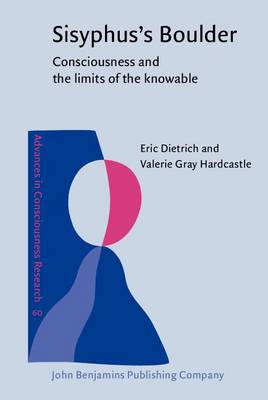Advances in Consciousness Research
3 primary works • 4 total works
Book 4
Locating Consciousness argues that our qualitative experiences should be aligned with the activity of a single and distinct memory system in our mind/brain. Spelling out in detail what we do and do not know about phenomenological experience, this book denies the common view of consciousness as a central decision-making system. Instead, consciousness is viewed as a lower level dynamical structure underpinning our information processing. This new perspective affords novel solutions to a wide range of problems: the absent qualia, the binding problem, the inverted spectra, the specter of epiphenomenalism, the explanatory gap, the distinction between objective and subjective, and the general skeptical doubts about the viability of the naturalist project itself. Drawing on recent data in psychology and neuroscience, Locating Consciousness also discusses when we become conscious and when we should think other animals are conscious. (Series A)
Book 60
Consciousness lies at the core of being human. Therefore, to understand ourselves, we need a theory of consciousness. In Sisyphus's Boulder, Eric Dietrich and Valerie Hardcastle argue that we will never get such a theory because consciousness has an essential property that prevents it from ever being explained. Consequently, philosophical debates over materialism and dualism are a waste of time. Scientific explanations of consciousness fare no better. Scientists do study consciousness, and such investigations will continue to grow and advance. However, none of them will ever reveal what consciousness is. In addition, given the centrality of consciousness in philosophy, Dietrich and Hardcastle claim that philosophy itself needs to change. That the central problems of philosophy persist is actually a profound epistemic fact about humans. Philosophy, then, is a limit to what humans can understand. (Series A)
Book 73
Constructing the Self analyzes the narrative conception of self, filling a serious gap in philosophy and grounding discussion in other disciplines. It answers the questions:
* What are the connections between our interpretations, selfhood, and conscious phenomenal experience?
* Why do we believe that our interpretations of our life-defining events are narrative in nature?
* From the myriad of thoughts, actions, and emotions which constitute our experiences, how do we choose what is interpretively important, the tiny subset that composes the self?
By synthesizing the different approaches to understanding the self from philosophy of mind, developmental psychology, psychopathology, and cognitive science, this monograph gives us deeper insight into what being minded, being a person, and having a self are, as well as clarifies the difference and relation between conscious and unconscious mental states and normal and abnormal minds. The explication also affords new perspectives on human development and human emotion. (Series A)
* What are the connections between our interpretations, selfhood, and conscious phenomenal experience?
* Why do we believe that our interpretations of our life-defining events are narrative in nature?
* From the myriad of thoughts, actions, and emotions which constitute our experiences, how do we choose what is interpretively important, the tiny subset that composes the self?
By synthesizing the different approaches to understanding the self from philosophy of mind, developmental psychology, psychopathology, and cognitive science, this monograph gives us deeper insight into what being minded, being a person, and having a self are, as well as clarifies the difference and relation between conscious and unconscious mental states and normal and abnormal minds. The explication also affords new perspectives on human development and human emotion. (Series A)
Sisyphus S Boulder. Consciousness and the Limits of the Knowable.
by Eric Dietrich
Published 1 January 2005

